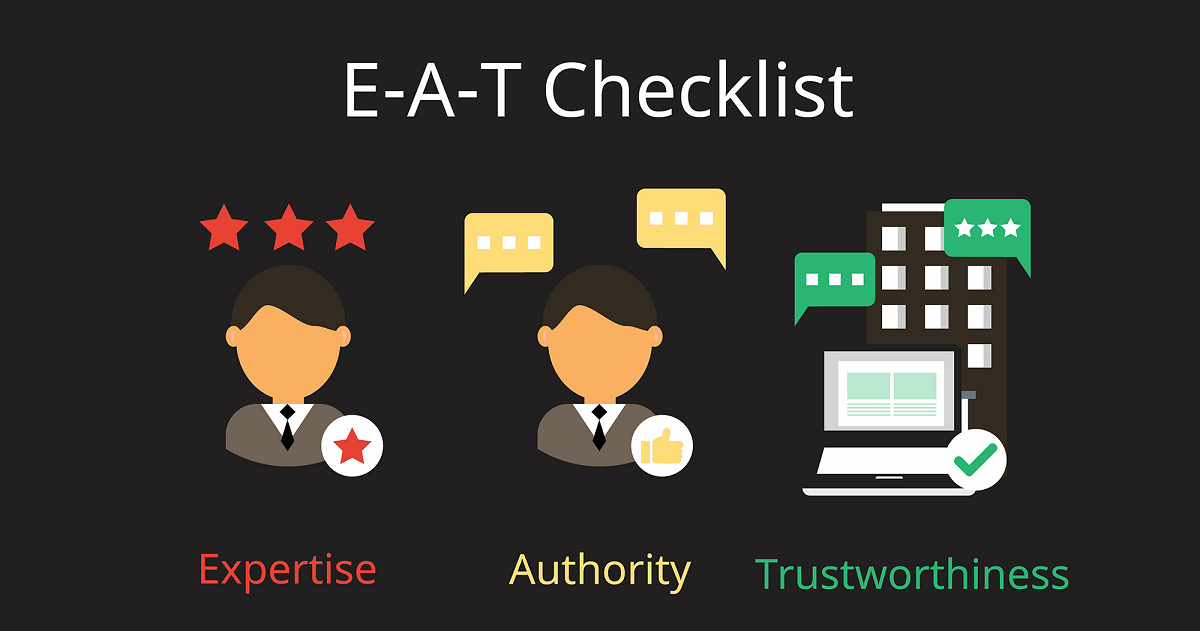BLOG
SEO Audit Essentials For Website Health

In the ever-evolving landscape of the digital realm, maintaining a robust online presence is not just a choice – it's a necessity. For businesses and individuals alike, a well-optimized website is the cornerstone of success in the vast world of the internet. However, the journey to online prosperity is not a one-time endeavor. Just like our health requires regular check-ups, the health of a website demands consistent evaluations. This brings us to the focal point of our exploration – the indispensable practice of SEO audits.
Welcome to our in-depth guide, where we unravel the mysteries and unveil the blueprint of SEO audit essentials for ensuring the vitality and longevity of your digital presence. An SEO audit is akin to a comprehensive health checkup for your website, dissecting its various elements to diagnose issues, enhance performance, and ultimately boost visibility in search engine results.
In this journey, we will delve into the key components of SEO audits, from the nuances of on-page SEO optimization to the intricacies of technical SEO and the ripple effects of off-page SEO strategies. Armed with insights into the tools that power these audits, we will navigate through the common pitfalls and issues that websites often encounter, offering practical solutions to fortify your online fortress.
Whether you are a digital marketing enthusiast looking to sharpen your skills or a business owner aiming for sustained online success, join us in this exploration of SEO audit essentials. Together, we will unravel the intricacies of website health, empowering you to navigate the ever-changing currents of the digital landscape with confidence and finesse.
Importance Of Regular SEO Audits
Regular SEO audits play a pivotal role in maintaining and enhancing the online visibility and health of a website. In the dynamic landscape of the internet, search engine algorithms frequently evolve, and user behavior undergoes continuous changes. Consequently, websites must adapt to these shifts to remain competitive and relevant. Here are key reasons highlighting the importance of regular SEO audits:
Firstly, SEO audits provide insights into the current health of a website's performance. By evaluating on-page elements such as title tags, meta descriptions, and content quality, businesses can identify areas for improvement and ensure their content aligns with the latest SEO best practices.
Secondly, search engines value technical aspects like website speed, mobile-friendliness, and proper indexing. Regular audits help in detecting and rectifying technical issues promptly, ensuring that a website is accessible and user-friendly across various devices.
Moreover, off-page factors, such as backlink profiles and social media signals, significantly impact a website's authority. Through regular audits, businesses can maintain a healthy link profile, disavow toxic links, and leverage social platforms to enhance their online presence.
Additionally, SEO audits are instrumental in identifying and addressing common issues like duplicate content, broken links, and 404 errors, which can negatively impact a website's search engine rankings. By resolving these issues, websites can provide a seamless user experience and avoid penalties from search engines.
In essence, regular SEO audits are not merely a one-time task but an ongoing process that ensures a website remains optimized, competitive, and aligned with the ever-evolving digital landscape. They empower businesses to stay ahead in the online race, adapt to changes, and deliver a superior user experience.
Key Components Of SEO Audit
- On-Page SEO:
- Title Tags and Meta Descriptions: Ensure they are unique, descriptive, and include relevant keywords.
- URL Structure: Use clean and user-friendly URLs with targeted keywords.
- Header Tags (H1, H2, etc.): Ensure proper use of header tags to structure content.
- Keyword Optimization: Check keyword density and placement in content.
- Content Quality and Relevance: Evaluate the overall quality, relevance, and uniqueness of your content.
- Technical SEO:
- Website Speed and Performance: Optimize images, use browser caching, and minimize HTTP requests.
- Mobile-Friendliness: Ensure a responsive design and a positive mobile user experience.
- Crawling and Indexing: Check for crawl errors, fix broken links, and ensure proper indexing of pages.
- XML Sitemap: Have a well-structured XML sitemap for search engines to understand your site's hierarchy.
- Robots.txt: Ensure it is properly configured to guide search engine crawlers.
- Off-Page SEO:
- Backlink Profile: Evaluate the quality and quantity of backlinks; identify and disavow toxic links.
- Social Media Signals: Assess the presence and engagement on social media platforms.
- Online Reputation Management: Monitor and manage online reviews and brand mentions.
- Keyword Research:
- Evaluate Existing Keywords: Assess the performance of current keywords and identify new opportunities.
- Competitor Analysis: Analyze competitors' keyword strategies to identify strengths and weaknesses.
- User Experience (UX):
- Site Navigation: Ensure easy navigation and a clear site structure.
- Page Layout and Design: Assess the overall design and layout for user-friendliness.
- Mobile Optimization: Confirm a positive experience for mobile users.
- Analytics and Tracking:
- Google Analytics: Analyze user behavior, traffic sources, and overall website performance.
- Google Search Console: Monitor search analytics, indexation status, and receive alerts for critical issues.
- Local SEO (if applicable):
- Google My Business Optimization: Ensure accurate business information, positive reviews, and local citations.
- Content Audit:
- Duplicate Content: Identify and resolve duplicate content issues.
- Content Gaps: Assess if there are gaps in content that could be filled to improve relevancy.
- Security and Accessibility:
- SSL Certificate: Ensure your site is secure with HTTPS.
- Accessibility: Confirm that your website is accessible to users with disabilities.
- Reporting and Analysis:
- Generate Reports: Summarize findings and recommendations in a clear and actionable format.
- Metrics Tracking: Establish key performance indicators (KPIs) for ongoing monitoring.
By thoroughly examining these key components, you can conduct a comprehensive SEO audit to identify areas for improvement and enhance your website's overall health and performance in search engine results.
Best Practices For Website Health Maintenance
- Regular Monitoring and Updates:
- Keep track of your website's performance, security, and analytics.
- Regularly update content to ensure relevance and freshness.
- Implement a content management system (CMS) for easy updates.
- Content Freshness:
- Regularly update and add new content to keep the website relevant.
- Refresh outdated information and remove obsolete content.
- Implement a content calendar for consistent updates.
- Security Measures:
- Install an SSL certificate for a secure connection (HTTPS).
- Regularly update and patch software, plugins, and themes.
- Conduct regular security audits and implement firewalls.
- Responsive Design:
- Ensure your website is mobile-friendly and responsive.
- Test the website's performance on various devices and screen sizes.
- Optimize images and other media for faster loading on mobile.
- Website Speed and Performance:
- Optimize images and multimedia elements to reduce page load times.
- Use Content Delivery Networks (CDNs) to distribute content globally.
- Minimize HTTP requests and utilize browser caching.
- Crawlability and Indexing:
- Create and submit an XML sitemap to search engines.
- Ensure proper usage of robots.txt to guide search engine crawlers.
- Fix crawl errors and broken links promptly.
- User-Friendly URLs:
- Create clean and descriptive URLs for better user experience.
- Avoid using dynamic URLs with excessive parameters.
- Implement URL redirects when restructuring the site or updating URLs.
- Backlink Profile Management:
- Regularly audit and monitor your backlink profile.
- Disavow toxic or spammy backlinks to maintain a healthy link profile.
- Foster natural and high-quality backlinks through content creation.
- Regular Backups:
- Perform regular backups of your website data and files.
- Store backups in secure, offsite locations.
- Test the restoration process periodically.
- Optimized Images and Multimedia:
- Compress and optimize images to reduce file sizes.
- Use proper image formats (e.g., JPEG for photographs, PNG for transparency).
- Provide alternative text for images for accessibility and SEO.
- Social Media Integration:
- Integrate social media sharing buttons for easy content sharing.
- Ensure consistency in branding across social media profiles.
- Engage with your audience on social platforms to build a community.
- Monitoring and Analytics:
- Utilize tools like Google Analytics to monitor website performance.
- Set up custom alerts for unusual traffic or potential issues.
- Analyze user behavior to make data-driven improvements.
By incorporating these best practices, you can enhance the overall health and performance of your website, ensuring a positive user experience and improved search engine rankings.
Future Trends In SEO Audits
- Artificial Intelligence (AI) Integration:
- The use of AI-powered tools for SEO audits is expected to increase. AI can analyze vast amounts of data quickly, identify patterns, and provide more insightful recommendations.
- Predictive Analytics for SEO:
- Predictive analytics can forecast future SEO trends and help businesses proactively adjust their strategies. This includes predicting changes in search engine algorithms and user behavior.
- Voice Search Optimization:
- With the rise of voice-activated devices, optimizing for voice search will become crucial. SEO audits will likely include assessments of how well a website caters to voice search queries and provides relevant results.
- Mobile-First Indexing Emphasis:
- As mobile usage continues to grow, search engines may prioritize mobile-first indexing. SEO audits will need to focus on ensuring websites are not only mobile-friendly but also offer a seamless and optimized mobile experience.
- User Experience (UX) Metrics:
- Core Web Vitals and other UX metrics are already influencing search rankings. Future SEO audits may place greater emphasis on assessing and improving factors like page load times, interactivity, and visual stability.
- Structured Data and Schema Markup:
- As search engines evolve, the importance of structured data and schema markup is likely to increase. Future SEO audits might include a deeper analysis of how well websites implement structured data to enhance search engine understanding.
- Localization and Global SEO:
- With the growth of global businesses, SEO audits may need to focus on localization strategies. Ensuring that websites are optimized for different regions and languages will be a critical aspect of future SEO audits.
- Security Audits as Part of SEO:
- As online security becomes a higher priority, SEO audits may incorporate assessments of website security. Search engines may give preference to secure websites, and audits may need to verify the implementation of HTTPS and other security measures.
- Content Experience Evaluation:
- Beyond content quality, future SEO audits may delve into the overall content experience. This includes assessing multimedia elements, interactive content, and how well the content engages and satisfies user intent.
- Integration of Social Signals:
- Social media plays a significant role in online visibility. Future SEO audits may explore the integration of social signals, evaluating how well a website's social presence contributes to its overall search engine performance.
As we journey through the dynamic landscape of SEO audits, it's evident that staying ahead of the curve is not just an option; it's a necessity. The evolving algorithms, technological advancements, and changing user behaviors underscore the importance of a proactive approach to website health.
In this exploration of SEO audit essentials and future trends, we've uncovered the critical components that contribute to a robust online presence. From on-page SEO intricacies to the integration of AI and predictive analytics, the toolkit for SEO professionals is expanding rapidly.
Embracing the future of SEO audits means recognizing the interconnected nature of website health, user experience, and search engine visibility. It's no longer just about keywords and backlinks; it's about understanding and adapting to the ever-shifting landscape of the digital realm.











